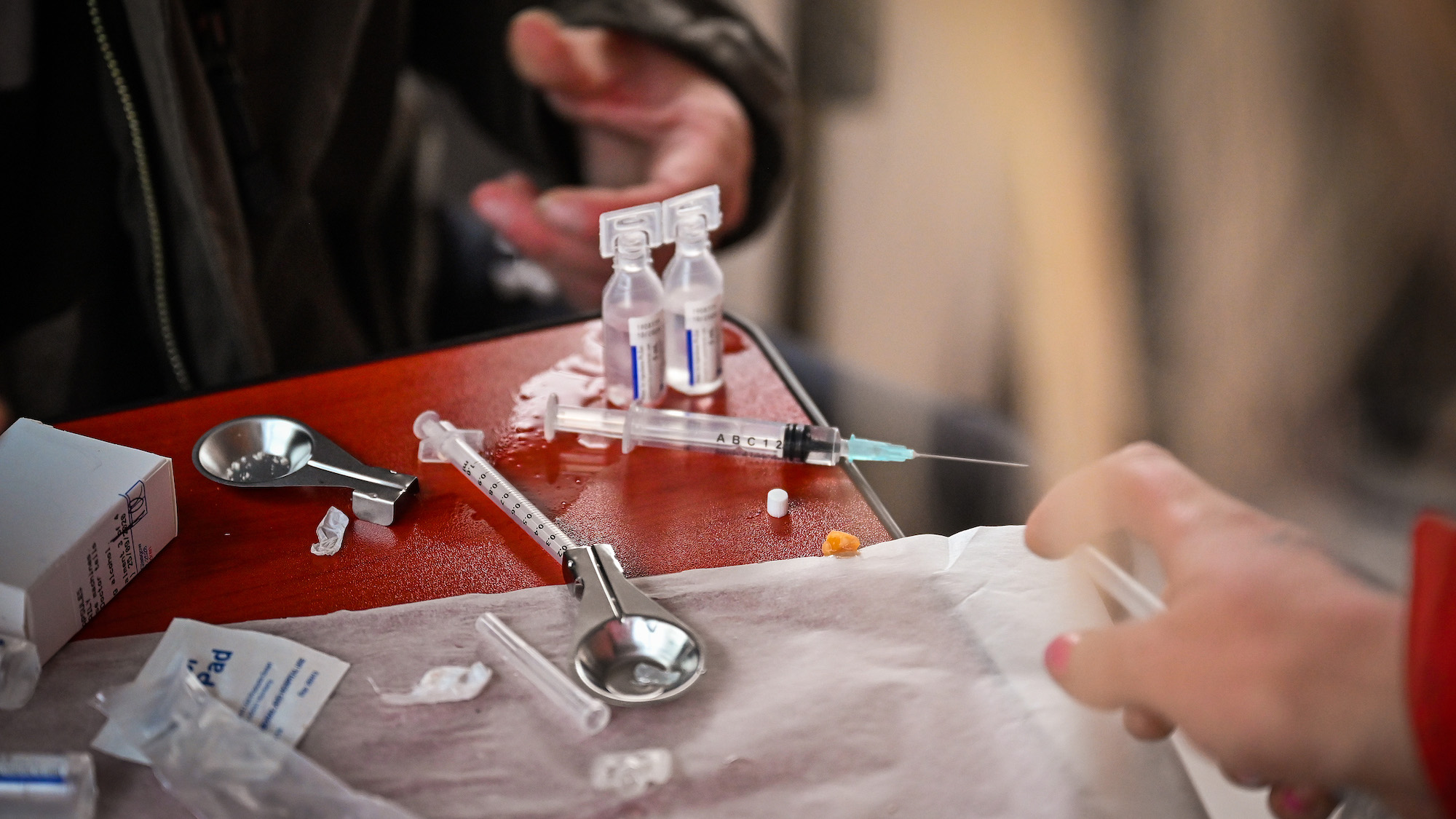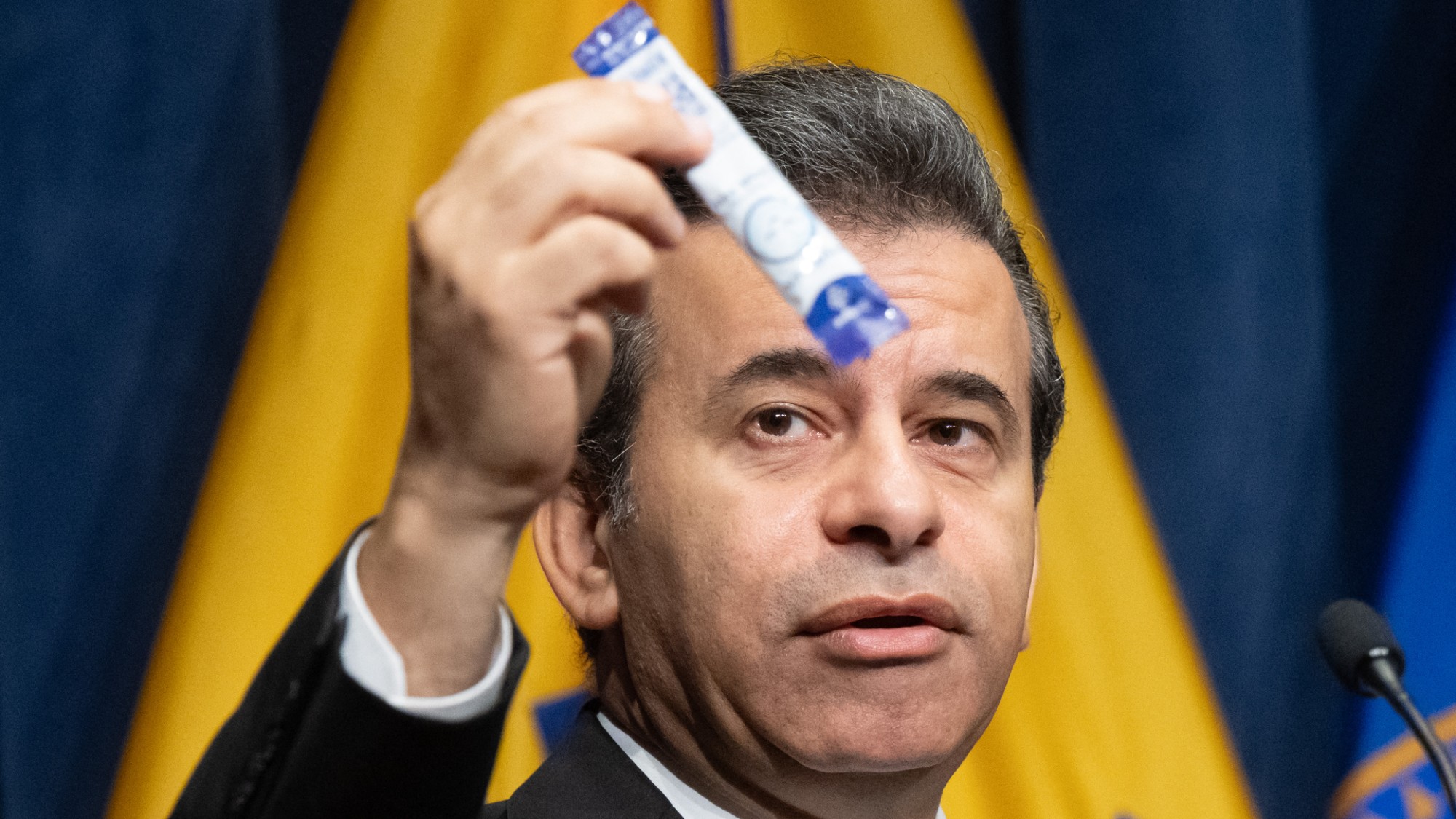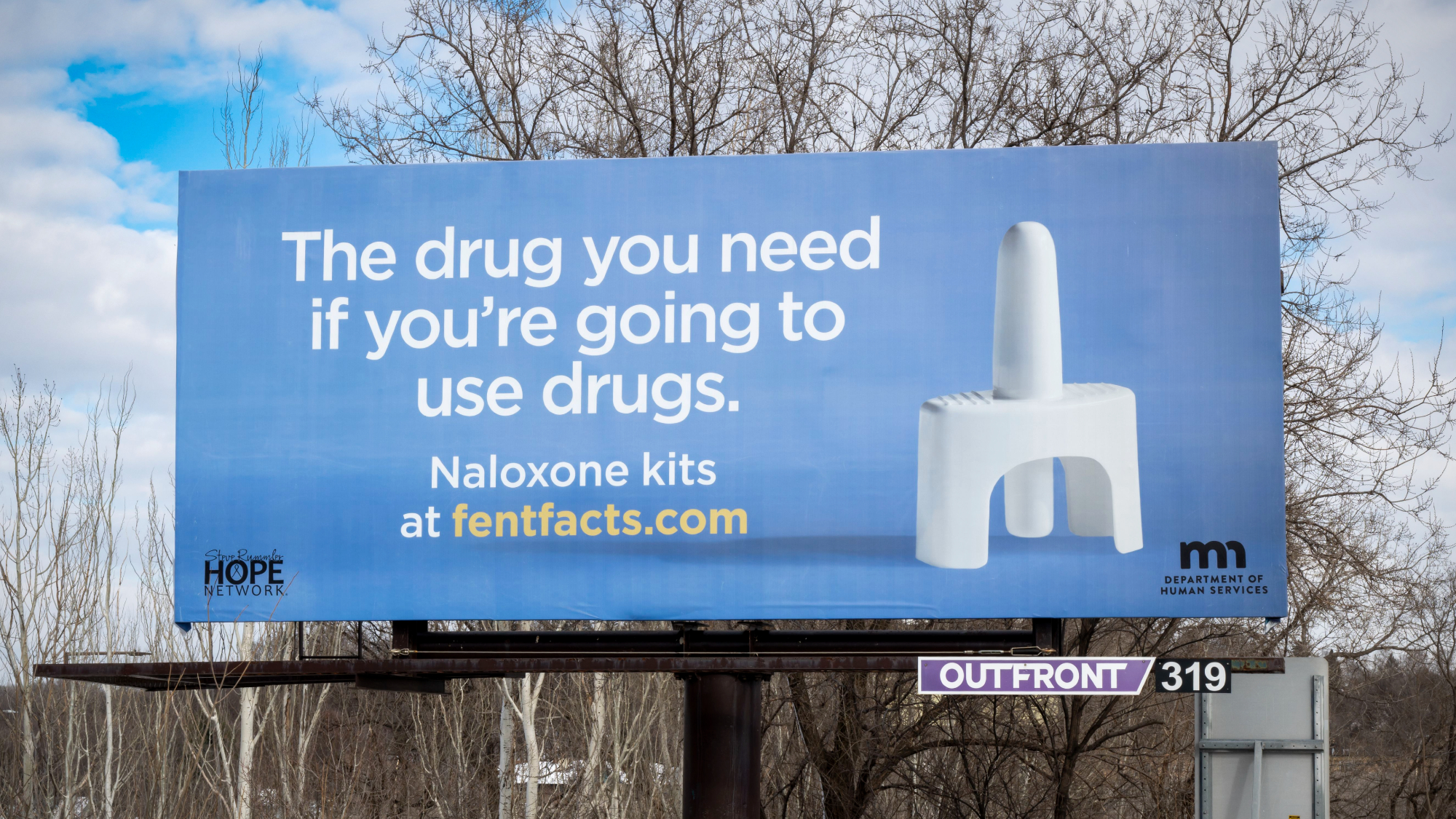Consumption rooms: a legal place for illegal drugs?
Scotland approves UK's first trial facility where users can take drugs under medical supervision

A free daily email with the biggest news stories of the day – and the best features from TheWeek.com
You are now subscribed
Your newsletter sign-up was successful
The UK's first consumption room for illegal drugs has been given the go-ahead by Scotland's authorities.
The trial facility, which will allow users to take drugs hygienically and under medical supervision, will be located in Glasgow, a city that has "long had the worst drug death rate in Europe", where more than 400 drug users "regularly inject in public in the city centre", said Al Jazeera.
The proposal for a "safe" consumption room has been "discussed for years", said BBC News, but can now go ahead following a decision by Scotland's chief public prosecutor that "users would not be prosecuted for possessing illegal drugs while at the facility". The consumption room is "supported by Scottish National Party, Labour and Liberal Democrat politicians", but they remain at odds with the UK Home Office, which said that "there is no safe way to take illegal drugs".
The Week
Escape your echo chamber. Get the facts behind the news, plus analysis from multiple perspectives.

Sign up for The Week's Free Newsletters
From our morning news briefing to a weekly Good News Newsletter, get the best of The Week delivered directly to your inbox.
From our morning news briefing to a weekly Good News Newsletter, get the best of The Week delivered directly to your inbox.
'Public health emergency'
Numerous attempts to instigate similar schemes have been "blocked by the Home Office", said The Big Issue, despite a range of experts, including the Royal College of Physicians of Edinburgh, backing the proposals. Campaigners say that consumption rooms can reduce overdose deaths, as well as drug-related litter.
In 2021, drug-related deaths hit record highs in Scotland, and despite more than £250 million invested in addiction services since, the death rate still remains "three times higher than 30 years ago".
The SNP MP for Glasgow Central, Alison Thewliss, said the UK government's war on drugs had been an "utterly humiliating failure". It should "finally accept" that its current strategy had created a "public health emergency", she said.
Consumption rooms created in other parts of the world had been a "resounding success", she wrote on the SNP website this month. Criminalising drug users had done "nothing but entrench a problem", and though safe consumption rooms would not be "a silver bullet" to Scotland's drug crisis, they would be the first step in a "new health-led approach to tackling drugs".
A free daily email with the biggest news stories of the day – and the best features from TheWeek.com
It's true that consumption rooms "do not directly guide individuals towards recovery or abstinence from drug use", Annemarie Ward, CEO of Faces and Voices of Recovery UK, told Al Jazeera. However, they are effective in "harm reduction" and "mitigating immediate risks".
'Significant reservations'
Scotland Minister Alister Jack said ministers in Holyrood had "no more excuses" not to act on the drug crisis, after the UK government said it would not "intervene" in the consumption room trial. But, he added, the government's position remained that consumption rooms were not an "easy solution", and that authorities should continue to "fully enforce the law" on drug users.
Malcolm Graham, head of local policing at Police Scotland, told the BBC that officers would "continue to crack down on drug dealers".
Scottish Tory leader Douglas Ross said there were still "significant reservations about the effectiveness" of consumption rooms, but that his party were happy for a "variety of potential solutions" to be considered.
In a letter published in The Scotsman earlier this month, Richard Lucas of the Scottish Family Party said consumption rooms were the first step towards "the legalisation and social acceptance of dangerous addictive drugs". A safe facility "takes away a motivation to stop", he said, and would only lead to more drug abuse, addiction and deaths.
A similar project in Portugal was acclaimed by public officials, said Michael Simmons in The Spectator, but "the figures tell a different story". With nearly as many overdose deaths in 2021 as there were in 2001, it was "hardly a roaring success".
Richard Windsor is a freelance writer for The Week Digital. He began his journalism career writing about politics and sport while studying at the University of Southampton. He then worked across various football publications before specialising in cycling for almost nine years, covering major races including the Tour de France and interviewing some of the sport’s top riders. He led Cycling Weekly’s digital platforms as editor for seven of those years, helping to transform the publication into the UK’s largest cycling website. He now works as a freelance writer, editor and consultant.
-
 Switzerland could vote to cap its population
Switzerland could vote to cap its populationUnder the Radar Swiss People’s Party proposes referendum on radical anti-immigration measure to limit residents to 10 million
-
 Political cartoons for February 15
Political cartoons for February 15Cartoons Sunday's political cartoons include political ventriloquism, Europe in the middle, and more
-
 The broken water companies failing England and Wales
The broken water companies failing England and WalesExplainer With rising bills, deteriorating river health and a lack of investment, regulators face an uphill battle to stabilise the industry
-
 Mixed nuts: RFK Jr.’s new nutrition guidelines receive uneven reviews
Mixed nuts: RFK Jr.’s new nutrition guidelines receive uneven reviewsTalking Points The guidelines emphasize red meat and full-fat dairy
-
 A fentanyl vaccine may be on the horizon
A fentanyl vaccine may be on the horizonUnder the radar Taking a serious jab at the opioid epidemic
-
 Nitazene is quietly increasing opioid deaths
Nitazene is quietly increasing opioid deathsThe explainer The drug is usually consumed accidentally
-
 Can TrumpRx really lower drug prices?
Can TrumpRx really lower drug prices?Today’s Big Question Pfizer’s deal with Trump sent drugmaker stocks higher
-
 The UK’s opioid crisis: why the stats don’t add up
The UK’s opioid crisis: why the stats don’t add upThe Explainer A new report has revealed that the UK’s total of opioid-related deaths could be much greater than official figures show
-
 Why the FDA wants to restrict kratom-related products
Why the FDA wants to restrict kratom-related productsIn the Spotlight The compound is currently sold across the United States
-
 US overdose deaths plunged 27% last year
US overdose deaths plunged 27% last yearspeed read Drug overdose still 'remains the leading cause of death for Americans aged 18-44,' said the CDC
-
 Trump seeks to cut drug prices via executive order
Trump seeks to cut drug prices via executive orderspeed read The president's order tells pharmaceutical companies to lower prescription drug prices, but it will likely be thrown out by the courts